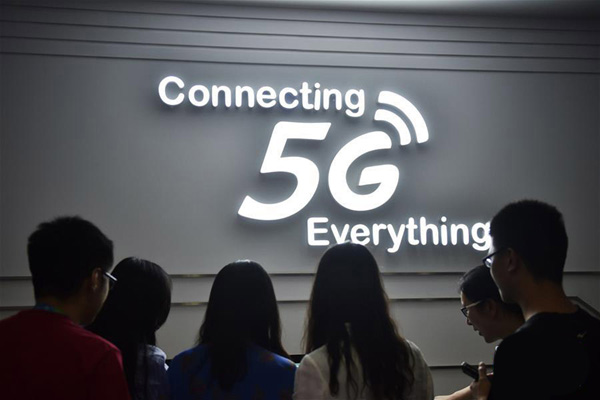Jun 06, 2019
Moscow courts investment from China at forum as domestic economic growth lags
Jun 05, 2019
Air Force Gen. John Raymond says China and Russia present new challenges.
An Gang, Adjunct Fellow, Center for International Security and Strategy, Tsinghua University
Jun 04, 2019
As America’s China policy turns from engagement to competition, Beijing must face facts: Trump or no Trump, the US has reached bipartisan consensus on containing China. How should Beijing respond? Where will the current confrontation lead? In crafting a new strategy towards the US, China must consider the ultimate goal of its rise, and how America fits into the big picture.
Jun 02, 2019
Unreasonable U.S. demands led to the collapse of talks in May, and China’s prerequisites for any deal are unchanged: Wang Shouwen
May 30, 2019
The U.S. Defense Department is seeking new federal funds to bolster domestic production of rare earth minerals and reduce dependence on China, the Pentagon said on Wednesday, amid mounting concern in Washington about Beijing’s role as a supplier.
Stephen Roach, Senior Fellow, Yale University
May 29, 2019
“When governments permit counterfeiting or copying of American products, it is stealing our future, and it is no longer free trade.” So said US President Ronald Reagan, commenting on Japan after the Plaza Accord was concluded in September 1985. Today resembles, in many respects, a remake of this 1980s movie, but with a reality-television star replacing a Hollywood film star in the presidential leading role – and with a new villain in place of Japan.
Tian Feilong, Associate Professor, the Law School of Beihang University
May 28, 2019
The China-US trade war has turned into a “tech war,” with the US aiming to block Huawei from building global 5G networks. Proposals from the recent Prague conference reflect US efforts to reassert its tech dominance by getting allies to follow its lead. But with Trump’s “America First” attitude undermining the moral basis of American leadership, and US innovation lagging, protectionist bullying will not provide a firm foundation for hegemony.
He Wenping, Senior Research Fellow, Charhar Institute and West Asia and Africa Studies Institute of the China Academy of Social Sciences
May 28, 2019
A senior U.S. State Department official’s inflammatory comments about a “Clash of Civilizations” reignited debate about how to view history and differing cultures. The Conference on Asian Civilizations Dialogue, hosted in Beijing this May, offered a more level-headed and equitable path to understand civilizational differences.
May 28, 2019
Chinese-American biologist questioned by US agency says he has disclosed his research activity to Emory University every year since 2012

Li Zheng, Assistant Research Processor, China Institutes of Contemporary International Relations
May 27, 2019
Trump’s attacks on Huawei open the door to the long-term “decoupling” of Chinese and US cyberspace. Will this separation of the two countries’ tech industries achieve US goals? Or will it introduce political meddling into the previously free and open environmental of innovation in America’s digital economy, while reducing global trust in US tech giants?
Back to Top

- China-US Focus builds trust and understanding between the U.S. and China through open dialogue among thought leaders.
- Our Offerings
- Topics
- Videos
- Podcasts
- Columnists
- Research Reports
- Focus Digest
- Stay Connected
-
Thanks for signing up!
- Get the latest stories from China-US Focus weekly.